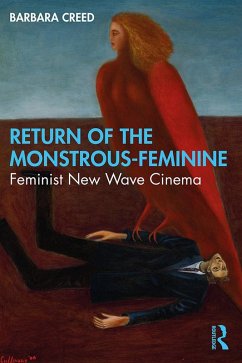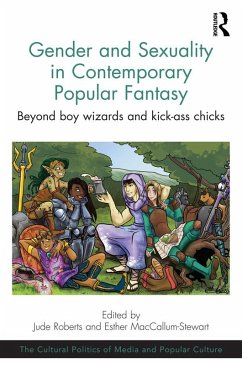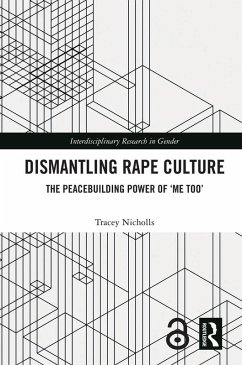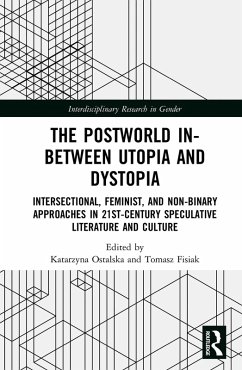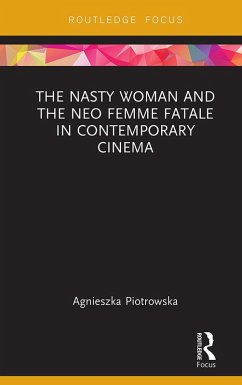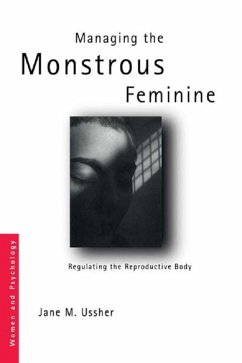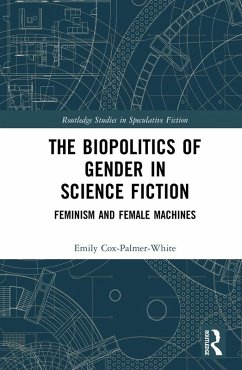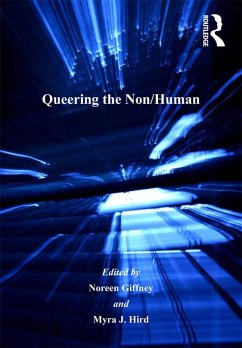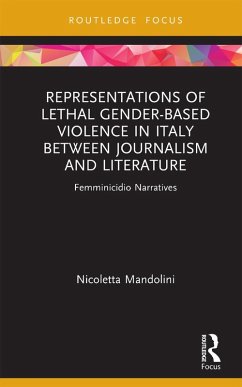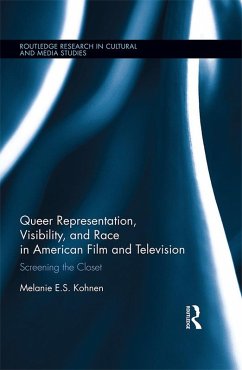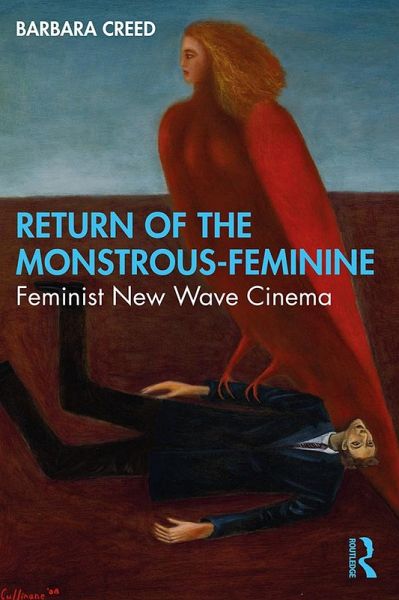
Return of the Monstrous-Feminine (eBook, ePUB)
Feminist New Wave Cinema
Versandkostenfrei!
Sofort per Download lieferbar
38,95 €
inkl. MwSt.
Weitere Ausgaben:

PAYBACK Punkte
19 °P sammeln!
This follow-up to the classic text of The Monstrous-Feminine analyses those contemporary films which explore social justice issues such as women's equality, violence against women, queer relationships, race and the plight of the planet and its multi-species.Examining a new movement - termed by Creed as Feminist New Wave Cinema - The Return of the Monstrous-Feminine explores a significant change that has occurred over the past two decades in the representation of the monstrous-feminine in visual discourse. The Monstrous-Feminine is a figure in revolt on a journey through the dark night of abjec...
This follow-up to the classic text of The Monstrous-Feminine analyses those contemporary films which explore social justice issues such as women's equality, violence against women, queer relationships, race and the plight of the planet and its multi-species.
Examining a new movement - termed by Creed as Feminist New Wave Cinema - The Return of the Monstrous-Feminine explores a significant change that has occurred over the past two decades in the representation of the monstrous-feminine in visual discourse. The Monstrous-Feminine is a figure in revolt on a journey through the dark night of abjection. Taking particular interest in women directors who create the figure of the Monstrous-Feminine, in cinema that foregrounds everyday horrors in addition to classic horror, Creed looks at a range of diverse films including The Babadook, A Girl Walks Home Alone at Night, Nomadland, Carol, Raw, Revenge, and the television series The Handmaid's Tale. These films center on different forms of revolt, from inner revolt to social, supernatural and violent revolt, which appear in Feminist New Wave Cinema. These relate in the main to the emergence of a range of social protest movements that have gathered momentum in the new millennium and given voice to new theoretical and critical discourses. These include: third and fourth wave feminism, the #MeToo movement, queer theory, race theory, the critique of anthropocentrism and human animal theory. These theoretical discourses have played a key role in influencing Feminist New Wave Cinema whose films are distinctive, stylish and diverse.
This is an essential companion to the original classic text and is ideal for students in Gender and Media, Gender and Horror, Gender and Film and Feminist Film theory courses.
Examining a new movement - termed by Creed as Feminist New Wave Cinema - The Return of the Monstrous-Feminine explores a significant change that has occurred over the past two decades in the representation of the monstrous-feminine in visual discourse. The Monstrous-Feminine is a figure in revolt on a journey through the dark night of abjection. Taking particular interest in women directors who create the figure of the Monstrous-Feminine, in cinema that foregrounds everyday horrors in addition to classic horror, Creed looks at a range of diverse films including The Babadook, A Girl Walks Home Alone at Night, Nomadland, Carol, Raw, Revenge, and the television series The Handmaid's Tale. These films center on different forms of revolt, from inner revolt to social, supernatural and violent revolt, which appear in Feminist New Wave Cinema. These relate in the main to the emergence of a range of social protest movements that have gathered momentum in the new millennium and given voice to new theoretical and critical discourses. These include: third and fourth wave feminism, the #MeToo movement, queer theory, race theory, the critique of anthropocentrism and human animal theory. These theoretical discourses have played a key role in influencing Feminist New Wave Cinema whose films are distinctive, stylish and diverse.
This is an essential companion to the original classic text and is ideal for students in Gender and Media, Gender and Horror, Gender and Film and Feminist Film theory courses.
Dieser Download kann aus rechtlichen Gründen nur mit Rechnungsadresse in A, B, BG, CY, CZ, D, DK, EW, E, FIN, F, GR, HR, H, IRL, I, LT, L, LR, M, NL, PL, P, R, S, SLO, SK ausgeliefert werden.




